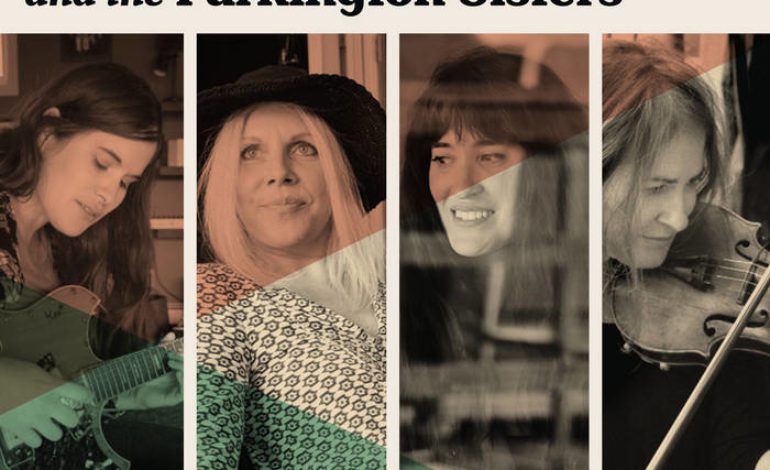

Collab cover collection
Now as a solo artist, after her musical forays in other bands Throwing Muses, The Breeders and Belly, Tanya Donelly teams up with the Parkington Sisters (who would’ve guessed) for their self-titled collaborative album, Tanya Donelly and the Parkington Sisters. They may have settled on such a nondescript name only because it is an album of coversongs–Donelly’s culled favorite songs, in fact, ranging from artists like The Go-Go’s, Leonard Cohen, Echo & The Bunnymen, Linda Ronstadt, The Pretenders and Split Enz. She asked the Parkington Sisters to be the backing band for the project and they ecstatically agreed. Commenting on the album post-production, on the record label’s site, she says the songs “are some of the most honest, moving, beautiful, unfiltered, true and cool songs that have ever been written, in my opinion,” while not forsaking the opportunity to throw in a little after-thought adulation for the band behind her: “and those same adjectives apply to the Parkington Sisters as well.”
All songs incorporate a stringed instrument whether it be cello, violin or viola, or even two or more in a single track. This is what individuates the songs from their originals. Though they drastically differ, they still contain enough trace to be vaguely recognizable to the mother. Most tracks, like in “Automatic” (The Go-Go’s) and “Devil You Know” (Split Enz) even bizarrely have one of these stringed instruments played by pluck rather than bow, more to the likes of a guitar than that droning sound produced by bow. And, naturally, if there’s any bows involved, it’s just begging to be profound and, alas, it ends up turning out to be a little syrupy.
The way the album is arranged, deliberately or not, is that it goes from glum to glory to glory to gloom. The first couple tunes are bleak and downcast while track three, “Days” (Kirsty MacColl), stands as a counter to the afore dreary stuff, what with all the sunlight and luminous imagery. While the track “Devil You Know,” comes in with wondrous syncopated synth notes and introduces some acoustic guitar backing for the first time in the album and continues that sacharrine sensibility just a little longer until it relapses back into the somber in their rendition of “Kid” by The Pretenders. In track four, “Ocean Rain,” originally by Echo & The Bunnymen, vaunts the most novel use of their sonic capacity within the whole album–there’s this silvery, rusty-playground-swing noise that wavers in the background as two piano notes alternate at the onset.
It’s also salient to mention that every track is a love song, and the last song, “You Will Be Loved Again,” is a meta-message to the audience. Donelly shrewdly placed this at the end as a reminder to all whom are listening–that they have the means and luck to find love again even if they had sympathized with the crestfallen content of the lyrics a little more so than the average besotted joe. It’s a semi-corny pick-me-upper after all those ersatz songs, but it still is ersatz–it’s a cover of Mary Margaret O’Hara.
It’s doubtful that Donelly and the Parkington Sisters will ever rejoin, as if this is a start of a contractual slew of more LPs to come. It seems more of like a one-time affair, but who knows. The hidden upside of the LP, though, is that it will attract and shanghai fans of the numerous artists they covered in the album to assess for themselves if that new rendition is worthy or not. All in all, the two artists had something of a synergy, even though it may be a little emotionally enervated in some pockets. But, then again, what can one expect out of a covers album?
